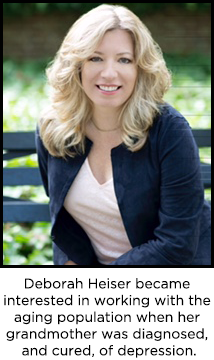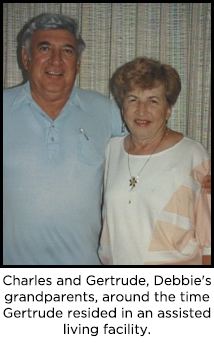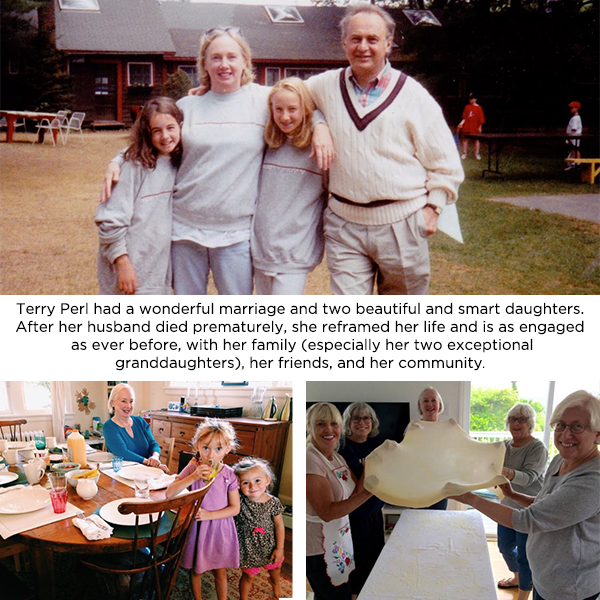
When Dr. Deborah Heiser was an undergraduate student majoring in psychology, in the 1990s, her grandmother became sick while residing in an assisted living facility in Florida.
“Your grandmother is depressed. I’ll make her better,’ a psychologist at the home told me,” Deborah recalled. “And, she did! That’s when I knew I wanted to do something with the elderly.” Now, as founder and CEO of the I.M.AGE Institute, Deborah is “redefining what being older looks and feels like,” showing us how to age well so we can lead “happy, fulfilled, meaningful lives.”
During a conversation with FabOverFifty, Deborah shed light on depression and aging–a subject too often swept under the rug–as well as on how to be “emotionally proactive” as we move from birthday to birthday.
FABOVERFIFTY: Please tell us a little about the field of ‘aging.’
DEBORAH: When I went to graduate school, about 20 years ago, there was one place in Alabama that had an aging program. The stigma around aging was quite profound. If an older person went to the ER, for example, the care probably wasn’t going to be as good. People didn’t think much about older people then. It’s changed, but still it isn’t where I’d like it to be.
FOF: What did you do when you graduated college and wanted to be involved with the elderly?
DH: I started working as a research manager in the Geriatric Division at the Cornell Westchester Psychiatric Hospital (Westchester, NY) and, when I applied to graduate school, there weren’t any dedicated doctoral programs in the field of psychology and aging (that I could find), and it was frustrating.
 I was advised to stay in the city and make it happen for myself, so I decided to go to Fordham University and major in Applied Developmental Psychology because I received tuition remission and a stipend. It was a great program.
I was advised to stay in the city and make it happen for myself, so I decided to go to Fordham University and major in Applied Developmental Psychology because I received tuition remission and a stipend. It was a great program.
After working at Cornell, and at the tail end of graduate school, I wrote my dissertation while completing my doctoral program at a 705-bed, long-term care facility in Manhattan, called Isabella Geriatric Center. I noticed there was undiagnosed depression in the facility and nurses had to fill out long Medicare forms with questions like, “Has the individual been crying lately?” I wanted to make a change in how depression was assessed so a difference could be made in the long-term setting. My dissertation, Identifying Depression in the Long-Term Care Setting, won a national award and changed how depression is assessed in nursing homes.
I started ImagineAge blog, in 2004, because I was frustrated with doing so much research in aging, yet no one even knew what we did. No one knew what was happening in Alzheimer’s research. No one knew what to look forward to in aging. So much stigma surrounded the subject. Experts would blog on subjects like finance, health, and mental health to ease people’s minds and give them access to issues to which they normally wouldn’t have access.
FOF: How does the I.M. AGE Institute help us as we age?
DH: I started the I.M.AGE Institute to redefine the image of aging so that we can continue to lessen the stigma around it. Vulnerability, rather than vitality, is usually portrayed in the media, and we’re freaked out by our physical decline as we age. We fear that our future will be filled with loss. It usually starts around the age of retirement, when we reach our sixties. ‘I feel like I’m stepping off a cliff,’ people say.
Besides the anxiety caused by the physical process of aging, a ton of research shows there are huge stressors leading up to retirement. But no one really focuses on the emotional developmental trajectory of aging. Our emotions, in fact, continue to grow as we physically decline.

There’s an idea that we’re more prone to getting depressed as we get older, but that’s not the case. It’s normal to be happier as we get older, according to a 75-year Harvard study. Our midlife years, from 30 to 50, are crunch time. We’re entrenched in raising kids; in our career; in taking care of our elderly parents. As those burdens go away or lessen, we can look around and say to ourselves ‘Hey, life’s pretty good. I like it.’ Emotionally, we’re stronger than we’ve ever been before and healthier, even though we aren’t the same physically.

If you have meaningful connections in your life, you’ll be happier, regardless of your physical condition. You love your family and they love you. You’re still productive. You have value. Your life has meaning.


2 Responses to “What We Need Most As We Age (The Answer Isn’t Health)!”
HughYonn says:
I first tried marijuana when I was 21 years old. Now, 48 years later, I still smoke pot.
I am 69 years old and have not taken a prescription medication in over 30 years. Has regular cannabis use enabled this?
I have no idea.
I am active…hiking, canoeing, camping, bicycling.
My last hike was 11.5 miles…to the Confluence Overlook in Canyonlands Natl Park. Has cannabis enabled this?
I don’t know.
I do know that I am living proof that prohibitionist propaganda is a fallacy…a blatant lie.
The only bad experience I ever had with cannabis was spending 5 years in Federal Prison for a marijuana offense.
Bessheit says:
I applaud the author for making this her mission as too many people dismiss depression in the elderly. I think having chronic serious health problems like painful arthritis, diabetes, macular degeneration or nonfatal but irritating physical conditions are a big problem that can’t always be solved. On the other hand, my best friend has been in a wheelchair since her early 20s due to a horrific bicycle accident she had when she was young and had a promising career in TV. But she is one of the most optimistic people I know and a joy to be around. Attitude and reality count for a lot.